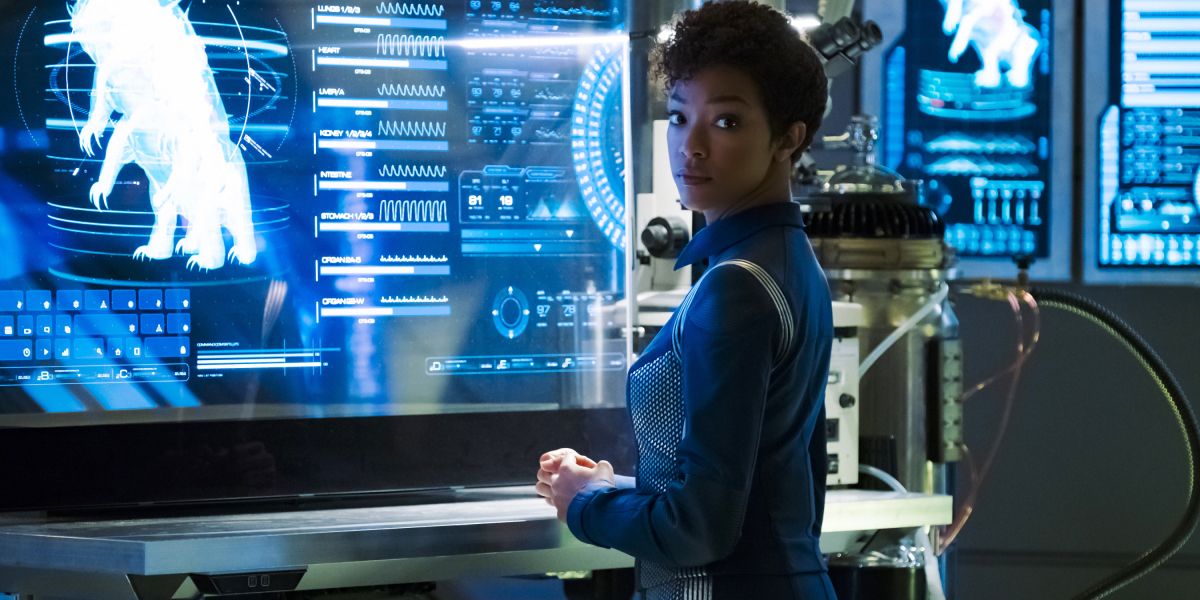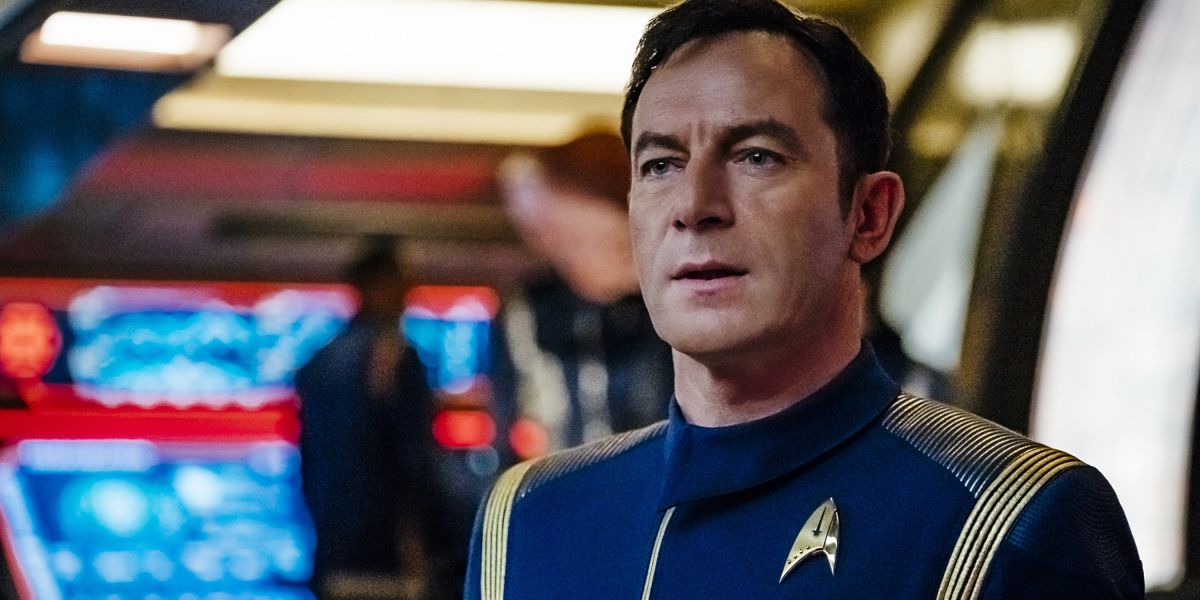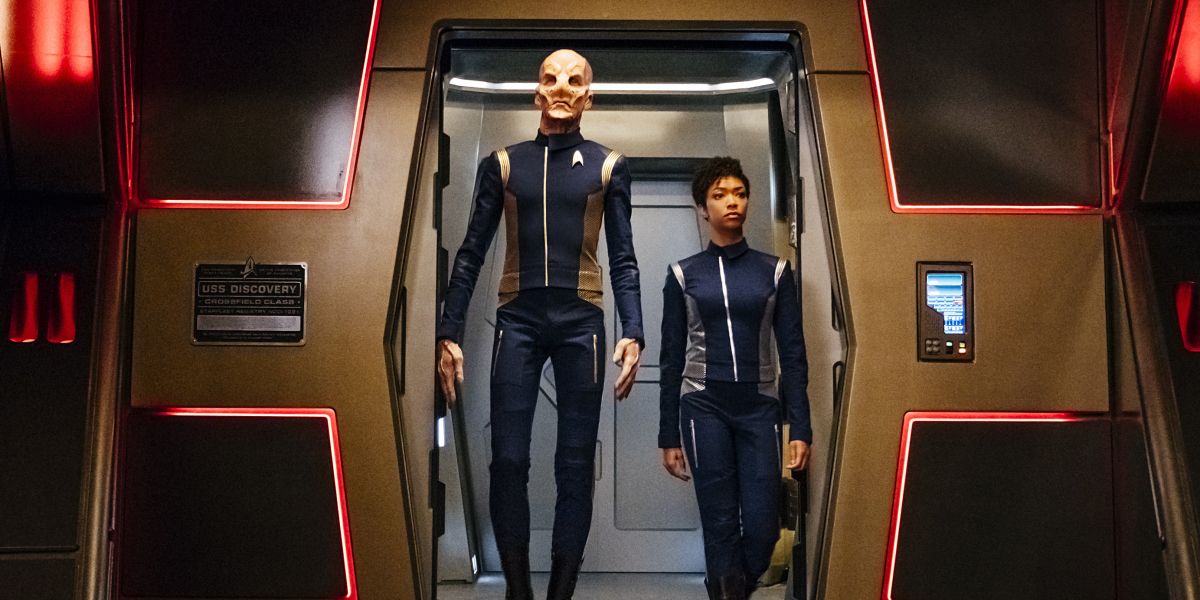Star Trek: Discovery takes a less action-oriented approach in the latest episode, resulting in an hour that feels a lot more like classic Trek.
When Star Trek: Discovery premiered, the series put a premium on action and spectacle in a way that rivaled some summer blockbusters and certainly anything on television not titled Game of Thrones. And while the gorgeous visual effects made for a terrific start to the series, and also drove plenty of new subscribers to CBS All Access, so they could at least watch the next few episodes before having to pony up for an actual subscription, the introduction may have felt to fans to be light years away from what Trek is all about and certainly what made some of the best episodes in the franchise so memorable in the first place.
The emphasis on action was upheld for the most part in the third episode, 'Context is For Kings', as a mission to investigate a stranded Federation ship led to a violent encounter with a destructive alien life form that Jason Isaac's Captain Lorca took a seemingly sinister interest in at the end of the hour. But as Discovery rounds the corner on the first four episodes, there's a perceptible change in how the series depicts the actions aboard the Discovery amidst the ongoing war with the Klingons. That change not only sets a new tempo for the series that's not nearly as reliant on action, but it also brings about a sense of… well, discovery that some may have felt was missing.
Related: Star Trek Discovery: Is Captain Lorca The Real Villain?
'The Butcher's Knife Cares Not for the Lamb's Cry' doesn't completely do away with its fascination with phasers and photon torpedoes. For one thing, the plot revolves around a Klingon attack on the mining settlement of Corvan 2, and Commander Landry (Rekha Sharma) meets a grisly end following an ill-advised attempt to sedate the mega-sized tardigrade, lovingly nicknamed "Ripper", all in an attempt and help with Lorca's plans to weaponize the creature's abilities. But the hour does so with an eye toward underlining how the actions of its crew and especially its captain make the Discovery's name rather ironic.
The hour isn't exactly shy about getting that particular point across, as Lorca informs Stamets his spoor-based science experiment is the property of a Federation at war and that the Discovery is no longer operating as a science vessel. That sentiment is echoed by First Office Saru, who doesn't take kindly to Michael using him as a way to gauge her initial hypothesis about Ripper's propensity for violence. But it's not just the tardigrade and Michael's analysis of the creature that drives a good part of the hour, there is also an underlining sense of exploration and, not to put too fine a point on it, the sense that these characters are boldly going where no one has gone before.
That affords Discovery a chance to split the difference between the showrunners' interest in telling a story that wants to be on the front lines of the conflict between the Federation and the Klingons, and the expectations that a show bearing the Star Trek moniker would in some way strive to feel like a Star Trek series. It's no coincidence, then, that the spoor-based warp drive Stamets and the Discovery's science crew have been developing becomes the engine that propels the two halves of Discovery's still emergent identity. The new technology promises Lorca an edge in the war he's determined to win, but it also offers a chance for the series to explore more of the boundless universe the writers have so far built a rather sturdy fence around. As such, Michael's study of the tardigrade, finding that it is the missing piece of the navigational system found on the Glenn feels like a pat but still appropriate way to bring the two elements of the series together. It also marks a change in Michael's personality, as she's determined not to judge the creature by its actions during their first encounter. Again, Discovery casts a wide net with the point it's trying to make, so that it can be seen to reference everything from Michael's opinion of the Klingons to her experiences on board the Discovery to the shifting allegiances among what's left of the various Klingon houses.
Ultimately, casting a wide net works in Discovery's favor, as it softens the series to a degree, holstering its phasers and proving the series will slow down to take the time for introspection. Even if it doesn't entirely achieve that with 'The Butcher's Knife Cares Not for the Lamb's Cry', enough hints are made that the series could head in that direction more often, or, as was seen here, split the difference to demonstrate an awareness of how those two elements can generate conflict within the Discovery crew that underlines how this show is and is not like other series that have come before.
Other Thoughts
The Klingon side of the story has literally stalled out. Voq and what's left of his followers are stuck in the graveyard that was the Battle at the Binary Stars because the Klingon's obsession with purity prevents him from appropriating parts from the Shenzhou to make his ship functional again. Voq's adherence to T'Kumva's fundamentalism keeps him from capitalizing on the events that transpired in the premiere, and as such he finds himself ousted when Kol brings food to Voq's starving crew. This leads to an interesting wrinkle when the seemingly L'Rell seemingly betrays Voq, only to later tell him his exile is all part of some greater fate. The slow burn of the Voq's story seemingly presents a problem for Discovery, but it's much too early to call it that. In revealing Voq's arc might also be equal parts L'Rell's, it becomes clear that the show's writers are in the process of setting up something more substantial.
Next: Star Trek: Discovery Kicks Off Its Real Story in Context is For Kings
Star Trek: Discovery continues next Sunday with 'Choose Your Pain' @8:30pm on CBS All Access.



